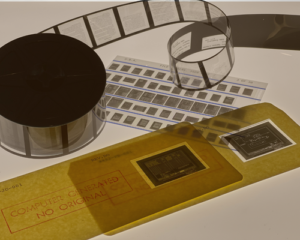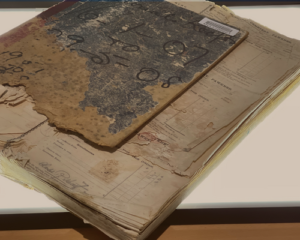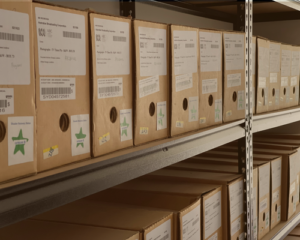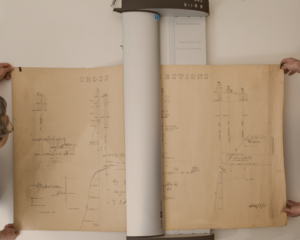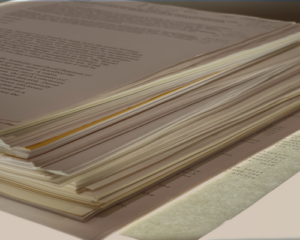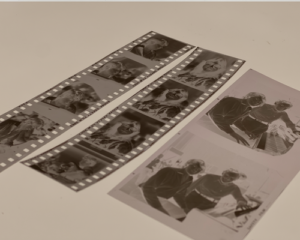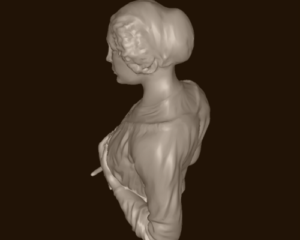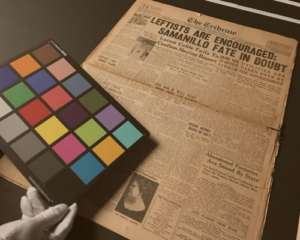the fadgi star system
- Home
- /
- Digitisation
- /
- The FADGI Star System
FADGI is a common set of digitisation parameters set by federal agencies for digitised and born digital historical, archival and cultural content. Based on comprehensive numerical analysis of the accuracy and quality of digitised output for specific media.
FADGI compliance is rated by stars, with one star the lowest and four star ranking the highest.
FADGI defines four quality levels of imaging, from 1 star to 4 star. Higher star ratings to more consistent image quality, but require greater technical performance of both operator and imaging system to achieve.
The appropriate star performance level for a particular project should be carefully considered in the planning stage of the project.

The star system ratings is as below. It is important to understand that the star ratings system is an indicator of acceptability of higher error relative to an aim value ( ie. accuracy). Four star requires much less error tolerance relative to an aim than one star requirement.
- One star imaging should only be considered informational, in that images are not of a sufficient quality to be useful for optical character recognition or other information processing techniques. One star imaging is appropriate for applications where the intent is to provide a reference to locate the original, or the intent is textual only with no repurposing of the content.
- Two star imaging is appropriate where there is no reasonable expectation of having the capability of achieving three or four star performance. These images will have informational value only, and may or may not be suitable for OCR
- Three star imaging defines a very good professional image capable of serving for almost all uses
- Four star defines the best imaging practical today. Images created to a four star level represent the state of the art in image capture and are suitable for almost any use
Generally, in order to avoid future rescanning and given the high costs and effort for digitisation projects, FADGI does not recommend digitising to less than three star. This assumes availability of suitable high-quality digitisation equipment that meets the assessment criteria. If digitisation equipment fails any of the assessment criteria or is unable to produce image files of minimum quality, then it may be desirable to contact DatacomIT to help with your digitisation services.
DatacomIT operates specialised digitisation facilities that meet at least the 3 star FADGI requirement. We employ experienced staff who undergo regular training and development, and posses security and police clearances. DatacomIT utilises a range of professional imaging equipment and software that ensures optimum digitisation and process efficiencies, while keeping the integrity of the archival item intact.
Microform Digitisation
Convert your old microfilm, microfiche, and aperture card archives into a digitalised, practical, and document management retrieval solution.
Fragile Book Digitisation
Preserving fragile books implies that not only are we seeking to preserve the image via the process of scanning and digitisation, but also wish to keep the integrity of the source intact.
Archive Records Digitisation
Digitising archive records helps preserve them for future generations as digital files are less susceptible to damage or loss compared to physical archives.
Large Format Digitisation
Large format digitisation requires specialised equipment to capture high-quality digital images that are larger than standard sizes.
File Digitisation
Paper files take up a lot of physical space, which can make it difficult to keep them organised and can lead to clutter in the office.
Photographic Digitisation
Digitising your photographic collections is an important part of its preservation, conservation and accessibility.
3D Scanning & Digitisation
Historical objects, memorabilia and artefacts help tell a story.
The FADGI Star System
FADGI is a common set of digitisation parameters set by federal agencies for digitised and born digital historical, archival and cultural content.

